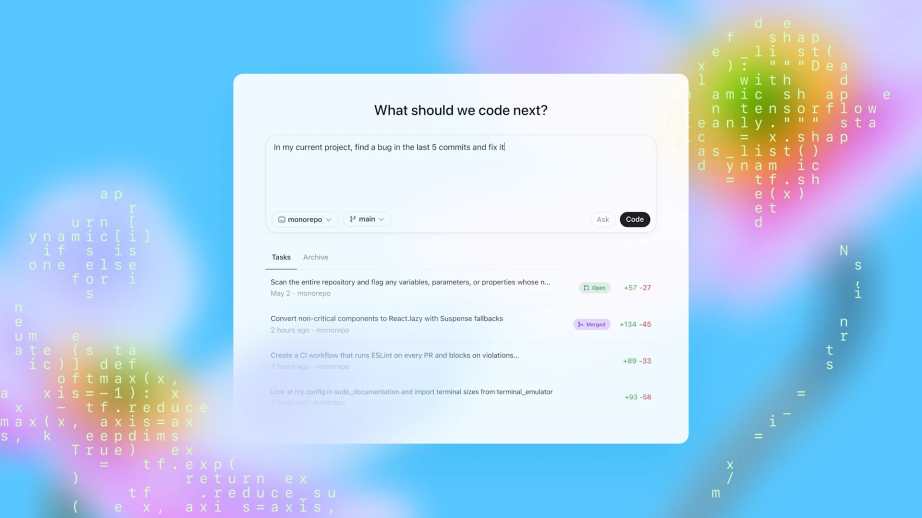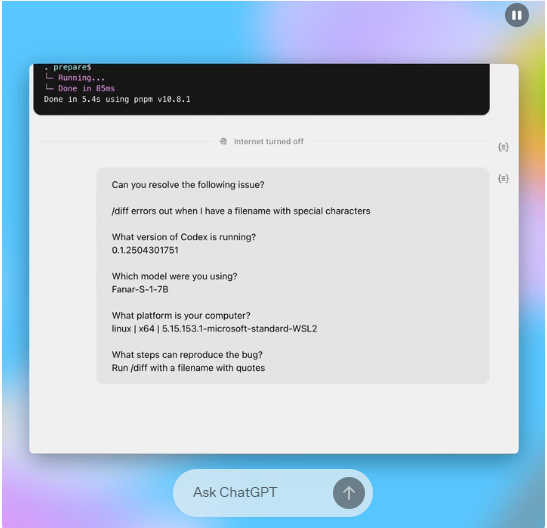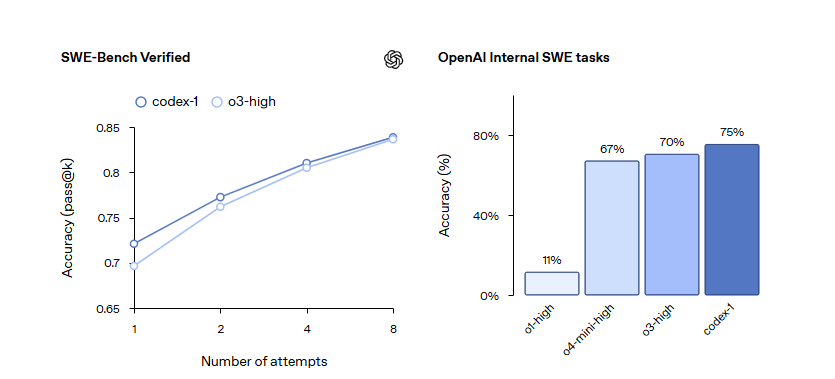Openai has announced a cloud-based software engineering agent designed to write code, fix bugs and help developers by performing multiple tasks at once.
“Today, we’re introducing Codex, a software engineering agent that runs in the cloud and performs tasks such as creating new features and fixing bugs. It can perform many tasks in parallel.”
What is a codex?
Codex is a research preview that provides AI-powered teammates that can autonomously handle engineering tasks, from creating new features, responding to code-based questions, running tests, and suggesting pull requests. Codex runs in a cloud sandbox preloaded with a codebase.
“Codex is a cloud-based software engineering agent that can work on many tasks in parallel and is powered by Codex-1. It’s ready to be used today by ChatGPTPro, teams and enterprise users,” Openai said in a blog post.
It is equipped with Codex-1, a specialized version of Openai’s O3 model, and is trained through reinforcement learning on actual programming tasks. the goal? Codex behaves like a disciplined, high-performance software engineer. This is Clan Code, accurate task execution, and thorough testing.

How Codex works
Codex is now available to ChatGpt Pro, Enterprise and team users via ChatGpt SideBar. Enter the prompt and press “Code” or use “Ask” to ask questions about the codebase. Each request is processed in a different, secure environment. Codex can also read and edit files, run tests, check types, and arrange code. Task completion times range from 1 to 30 minutes depending on complexity.

Once complete, Codex commits changes and shares verifiable output (logs, test results, etc.), allowing developers to track every step. You can then request follow-up, press GitHub PR, or sync changes to your local development setup.
To fine-tune the behavior of Codex, developers can add agents.md files to the repository, like readme.md, but there are specific instructions on how Codex moves, tests, and contributes to the codebase. This allows teams to implement project-specific standards and make the most of Codex capabilities.
Performance and benchmarks
The codex shows impressive performance on both internal and external benchmarks. With Openai’s curated set of real-world SWE tasks, Codex-1 delivers 80% high 1-precision @1 accuracy. Codex continues to work without the agents.md configuration.

Steps to a trusted AI coding agent
Security and transparency have been central to Codex’s design. All actions are traceable. If something goes wrong, such as a test failure, Codex will explicitly let you know. This traceability helps users to grasp problems early and ensure a higher standard for safety, especially as autonomic agents become more capable.
However, Openai emphasizes the importance of human surveillance. Users should always manually review the agent-generated code before merging or deploying it.


Codex is now available
With the support of Plus and EDU users, Codex is now rolling out ChatGpt Pro, Enterprise and Team Plans from today.
As Altman said, Codex is not just a coding assistant, it is a parallelizable engineering agent. The dream of offloading boring or complex software tasks to AI is approaching reality.

🚀Want to share the story?
Submit your stories to TechStartUps.com in front of thousands of founders, investors, PE companies, tech executives, decision makers and tech leaders.
Please attract attention
Source link

